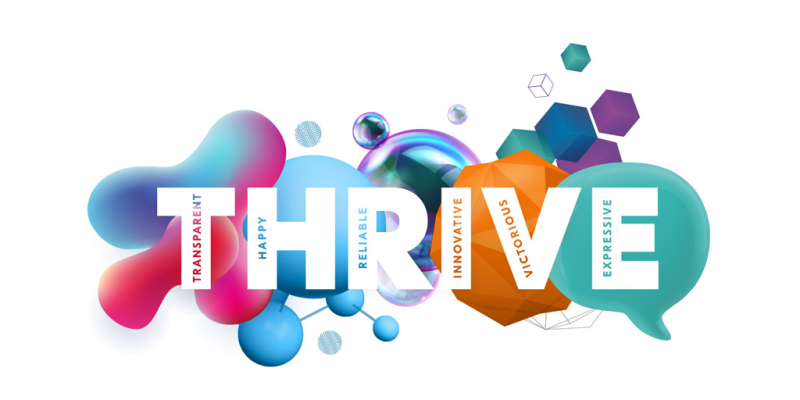On Wednesday 25 May, Bango hosted its 2022 AGM. All resolutions were duly passed. Following the formal business of the AGM, we opened the floor to questions from shareholders:
Q) In the annual report, it says Bango employees up to board-level maintain links with Cambridge University and the Cambridge University Computer Laboratory. In what form does this take?
A) Ray Anderson: “I am a Cambridge University Computer Science alumnus and participate in Cambridge University Ring, which is an alumni network of organisations that have been hatched out of the Cambridge University. We work with a number of other teams in Cambridge University, and we use Cambridge Angels, which is a network of successful entrepreneurs who built businesses, often connected to Cambridge University. We use that as a way of connecting individuals within Bango who have interesting topics to discuss, for example, data is very topical, with the right people at Cambridge University.”
Q) There has been significant press coverage on the decline of Netflix subscriber numbers, please could you detail any impact the pressure on OTT streaming services has had on your business?
A) Paul Larbey: “The market for OTT services is increasingly competitive but I think there is still significant pent-up demand. While Netflix dropped subscribers in Q1, if you look at Disney’s results, they delivered huge growth. In fact, when you look at the level of growth Disney achieved, it more than exceeded the customers who unsubscribed from Netflix. Several other streamers delivered material increases in subscriber numbers, which shows that the OTT streaming market continues to grow.
In our FY21 results presentation, we talked about the opportunity created by matching the strengths of telcos with the needs of OTT streaming companies (and vice versa). The streaming companies need access to a customer base, a way of marketing and selling to those customers and ideally a way of acquiring customers with a relatively low churn rate. Then, on the operator side, telcos need to differentiate what is essentially a utility, first-party service like broadband by spicing-up the offer with exciting third-party services. So, the two have come together at the right time and that’s why we’re seeing such big traction with our platform licensing SaaS product – a solution we have started to think of as the Bango ‘digital vending machine’. By deploying our digital vending machine, telcos are in an ideal place to differentiate their own services with third party streaming services, help these OTT steaming providers find new customers, reduce customer churn, and generate increased ARPU (average revenue per user). We have announced platform licensing deals with Verizon and T-Mobile, among others.
What’s great is that these deals bring recurring revenue to Bango, and we will see this annualised recurring revenue grow because now is the time for more telcos and merchants to take advantage of the joint offers and bundling of services business.”
Q) Is Google’s restriction of cookie data having an impact on your business?
A) Anil Malhotra: “It is having an impact on the business, but interestingly, it is having a positive impact. The digital marketing industry has been through significant upheaval. Targeting techniques which had been used for 10+ years are no longer so widely available. Those traditional methods relied on simple techniques like tracking the websites people browse or tracking what apps they download, and then making assumptions about what those people might actually be interested in spending their money on based on this comparatively casual online activity. Tracking was never high-quality data.
On top of this questionable data quality, developers and others have been challenged by both Apple and Google reducing the availability of cookie tracking data, in a profound challenge to online ad targeting that Bango has termed ‘The App-ocaplyse’. If you follow Bango closely, you may have seen some of our marketing material on the topic. This reduction in available targeting data has forced people to look for other sources. And, of course, Bango Audiences is something new for digital advertising that we categorise as ‘purchase behaviour targeting’ data (PBT). PBT uses an entirely different source of data insight focused on what users spend their money on rather than what they casually browse from one minute to the next. Consequently, Bango Audiences are a very robust source of data.
It is hard proof of purchase intent unlike cookie tracking and we’re finding that both app developers and those from broader the marketing world are contacting us to learn more about PBT.”
Q) Can you share market consensus forecast figures?
A) Paul Larbey: “Before 2022, we had one analyst covering Bango, Liberum, so we have not previously been able to share those market forecasts due to regulatory restrictions. Recently, we’ve had two other analysts produce forecasts – Singer Capital Markets and Berenberg. Now we have 3 covering analysts, we can publish consensus figures. Moving forward, you will see these numbers published to our investor relations website in the next 2 weeks.”
Q) The share price has declined recently – is that demotivating for staff given part of their incentive package is share options?
A) Paul Larbey: “Anyone who has worked at Bango for more than six months will be a share option holder. The options vest over a number of years but the option price is fixed to the market price on the day they were issued. This means although some employees will have shares that are technically underwater, most will also have shares issued at much lower prices, some at around 50p for example. Bango employees see the big picture and they’re excited about the future. A temporary dip in the share price is not ideal but everyone at Bango sees where we’re going and sees the momentum that we have. Share options continue to be a strong motivator for people to join Bango and stay with the company.”
Q) Can you elaborate on how you are allocating your R&D spend?
A) Paul Larbey: “The key areas are resale & bundling, specifically, our digital vending machine proposition, and Bango Audiences.
The strategy driving the digital vending machine idea is meeting the challenge of trying to make the complex simple and ensuring that it remains simple at scale. We’re taking hundreds of merchants and connecting them to many hundreds of payment providers and other distribution channels for merchants. That creates a challenge for both sides. If you’re a streaming provider and you increase the price of your subscription, we’ll have to update all of those hundreds of channels – it is very complex. So, we are building systems that allow that to be more simply managed. Likewise, on the payment provider’s side, you’re managing what you offer customers to bundle. For example, with Verizon’s new +Play offering, there will be multiple subscriptions on offer. When you’re trying to combine offers from multiple providers in different verticals, from video streaming, fitness, lifestyle, education etc you need a lot of intelligence to blend those services together ways that generate the most benefit.
In Bango Audiences, we are investing in various elements including adding new platforms, such as TikTok last year (and we are working on Snap at the moment), to investing in technology that will allow us to extract more value from the data that we have. For example, in 2021, we enabled ‘tailored audiences’ so developers could create very specific audiences to match their needs.”
Q) How are you finding recruiting new staff in the current market?
A) Paul Larbey: “Employee engagement levels are very high, well above industry norms. We published our employee engagement survey results in the annual report and are conducting this year’s survey at the moment. High employee engagement is a key strength for Bango as it means attrition is very low. That’s great because when we’re recruiting, we’re recruiting to grow, not to replace. We also have the natural benefit of being a platform business, so we don’t have to increase people proportionally to our growth. We need great people to help us grow, to develop new things that we can sell to customers, to bring in new customers but the growth is not limited by people. Recruitment is progressing extremely well, we are able to attract good talent, motivate them and engage with them. Recruitment is harder and often slower than it was two years ago, but it is still happening. Last year, we hired in excess of 40 people and, so far, this year we have already hired 26”.
Q) You spoke about reaching hundreds of millions in revenue at your Strategy Day. Can you share the roadmap, the anticipated product contribution and, if possible, the timeline on achieving this?
A) Paul Larbey: “We’ve not published a time for this, but if you look at our historic performance, we’ve grown with a CAGR ~50% over the past 5-6 years. If we continue only at that growth rate, generating hundreds of millions of dollars in revenue is not too far in the future. Historically, we just had the transactional payments business bringing in revenue growth. Now, we have the platform business with an annualised, recurring revenue stream that sits on top of payments. We said at the Strategy Day that ARR from this business should easily be $7 million by 2023 – just from the contracts we had at the time. Then, we add the growth in Bango Audiences, and you can see we’re really at an inflexion point with multiple growth drivers from the same, core technology.
If we maintain the historic growth rate, we will get to hundreds of millions at a point in the future. But the opportunities are there for us to accelerate the growth rate, and that’s why we’re investing. We’re investing in both research & development and sales & marketing because now is the time to grasp these opportunities, and we’ll see what impact that has to the growth rate over the next two to three years.”


